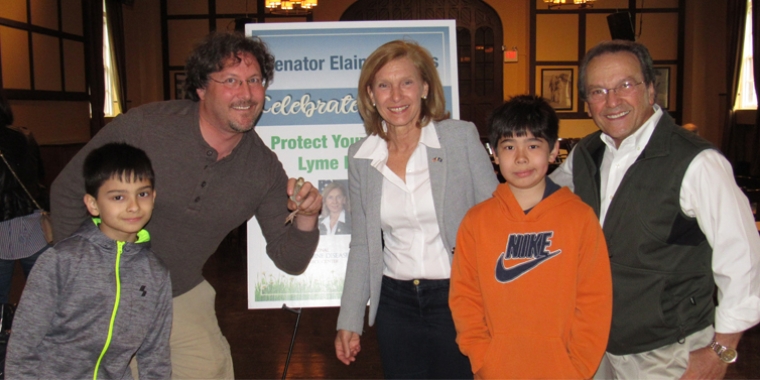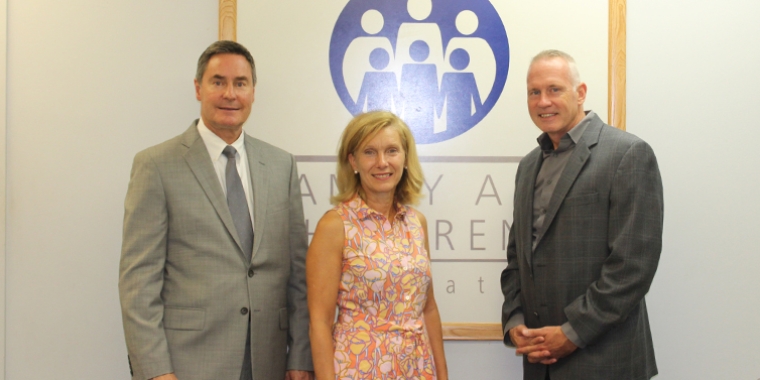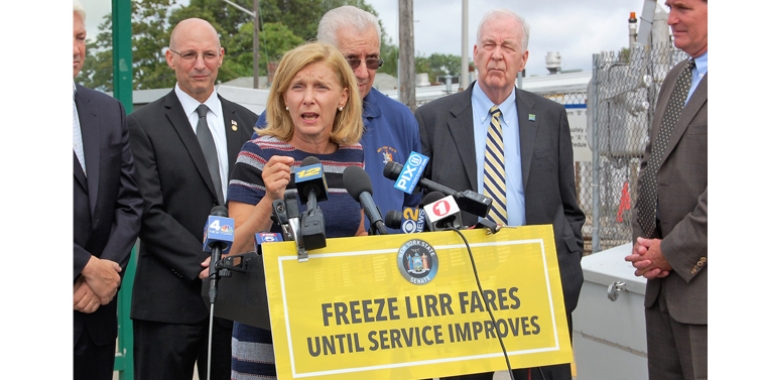
Senator Phillips Partners With The Sands Point Preserve To Host Lyme Disease Awareness Event
May 7, 2018

With increased cases of Lyme disease on Long Island, Senator Elaine Phillips recently partnered with the Sands Point Preserve at their annual Spring Celebration to bring awareness to the signs and symptoms of the disease.
“Lyme and other tick-borne disease rates continue to increase on Long Island and throughout New York State,” said Senator Phillips, a member of the Senate Task Force on Lyme and Tick-Borne Diseases. “Awareness is the key to prevention – and we must continue to educate the public on the signs and symptoms of this disease, how to properly remove ticks and how to keep our children safe. Thank you to the Sands Point Preserve and Managing Director Beth Horn for helping shed light on this disease, and to Dr. Joseph Licata for continuing to educate the public.”
Attendees listened to a special presentation by Dr. Joseph Licata on awareness and education of Lyme and tick-borne disease, and Biologist and Ranger Eric Powers discussed how Northern Bobwhite Quail are used to combat the tick population. Quail are used to naturally fight the tick population to avoid spraying toxic chemicals.
Dr. Joseph D. Licata, a pediatrician in New York for 37 years, works at Global Pediatrics in New York City and is an attending pediatrician at Weill Cornell Medicine, New York Presbyterian Hospital and Lenox Hill Hospital. He is also the inventor of “Tick It Away,” a tick removal device that is ergonomically shaped and precision-made to remove ticks, alive and intact in a painless, quick, simple motion.
Earlier this year, Senator Phillips announced a legislative package, which she co-sponsored, to combat Lyme and tick-borne diseases. Specifically, the bills include:
- A Pilot Program for Lyme and TBD Testing in Children (S. 7169): Creates a pilot program for Lyme and TBD testing in children, through which children with certain diagnoses that have similar symptoms as Lyme and other TBDs could voluntarily be tested for TBDs. Experts have noted that children ages 5-7 have the highest rate of contracting Lyme disease, and by targeting at-risk populations, we can better ensure that those who contract Lyme or other TBDs can be diagnosed and treated early.
- The Creation of a ‘Mental Health Impacts’ Report (S. 7171): Requires the state to conduct an impact study considering how infectious diseases and blood-borne pathogens, including Lyme and TBDs, may have correlations with mental illness in infected individuals. Such an initiative would enable the State to better address any mental health consequences associated with these infections.
- Improve Reporting Requirements of Lyme and TBDs After Death (S. 7168): Requires those responsible for conducting post-mortem examinations to report to the State Department of Health any time they discover that the deceased individual was afflicted with Lyme or any TBD at the time of their death. Such reporting will help improve the accuracy of Lyme and TBDs statistics.
- Lyme and TBDs Working Group (S. 7170): Establishes a Lyme and TBDs working group to review current best practices for the diagnosis, treatment, and prevention of Lyme and TBDs and ensure that the state remains apprised of new developments in the ever-evolving field.
Share this Article or Press Release
Newsroom
Go to NewsroomSenator Phillips Secures $250,000 Grant For The Village Of New Hyde Park
September 19, 2018

Senator Phillips Secures $100,000 for the Family & Children’s Association
September 18, 2018


